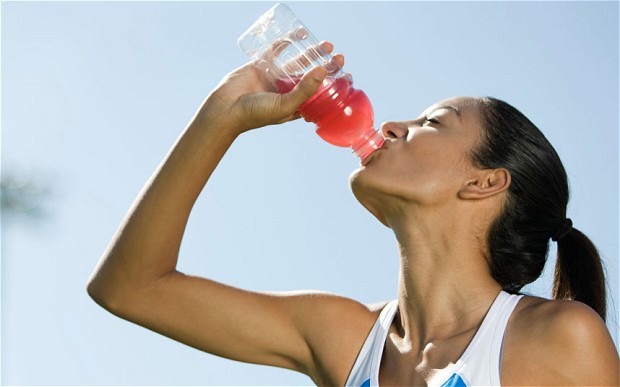Energy drinks are often used to deliver extra boost of performance whenever it is needed. Although they are effective, we should be aware whether energy drinks could really boost our energy levels. In essence, energy drinks are just soft drinks, but they are advertised to offer us much better energy boost than normal drinks. This could allow athletes to achieve superior performance. As an example, there’s a scientific basis that caffeine could contribute to temporary improvements in physical performance and mental alertness. Common components of energy drinks are B Vitamins, sugars and caffeine. Caffeine is the main ingredient used by energy drinks and it is usually added in the form of yerba mate or guarana. Energy drinks may also contain more HFCS or High Fructose Corn Syrup. It is essentially refined sugar, but with much higher calories content. Athletes should be aware of effects caused by energy drinks. There are specific psychological and physiological effects that can be attributed to energy drinks.
In general, energy drinks will make feel pepped up and more alert, due to the increased intakes of caffeine. In this case, a cup of thicker coffee could have a similar effect. Energy drinks often contain vitamin B components. However, by maintaining a proper diet, we should be able to get more than enough vitamin B for our daily requirements. In this case, the amount of vitamin B we get from energy drinks can be considered as negligible. Consuming more than 400mg of caffeine each day can cause undesirable effects on athletes. Stomach upsets, abnormal heart rhythms, increased urination, sleeplessness, irritability and nervousness would harm our performance in important competitions. However, High Fructose Corn Syrup could still provide us with good boost of energy during an important sports match. In this case, the more suitable way is to consume complex carbohydrates for high-fiber sources, like whole grain products. These foods will allow us to get slow release of energy from steady breakdown of complex carbohydrates. Without physical activity, HFCS will be stored as fat; so it is unsuitable for people with sedentary lifestyle.
To minimize crashes and spikes in blood sugar and to allow for maximum absorption, the recommended concentration of sugar should be no more than 7 percent. Unfortunately, many energy drinks have much higher concentrations of sugar. This will cause fluid absorption to become slower and this increases the likelihood of dehydration. If blood sugar level is high, our body cells get less water, because we need more water to dilute the higher concentration of sugar. Also, in many countries, there are no requirements to print the level of caffeine in drinks. Energy drinks are often linked with reports of emergency room visits, abnormal heart rhythms and nausea. In general, it is perfectly possible for athletes to perform well without energy drinks. When consumed excessively, these drinks will have negative effects on our performance due to exposure to high level of caffeine and sugar. It is better to obtain energy from complex carbohydrate that can be acquired from whole grain food.

